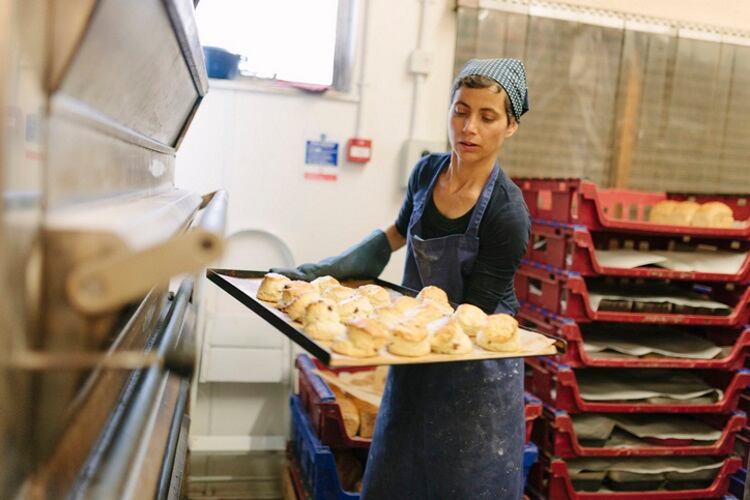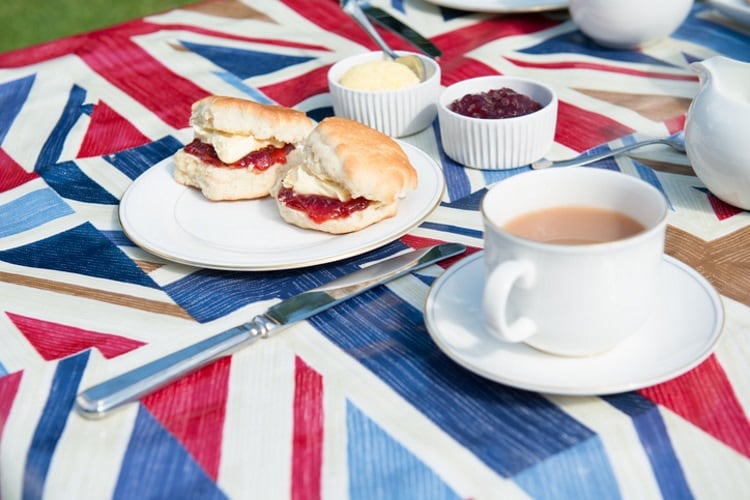Scones are a beloved addition to the afternoon tea, but also consumed in abundance by Brits to celebrate high days and holidays. In fact, UK retailers reported a 120% surge in the sale of scones (clotted cream: 300%; jam: 40%) to celebrate King Charles III's coronation earlier this year.
However, it’s amazing how much consternation this simple bake has caused, with the age-old debate over how to serve scones even enticing the late HMS Queen Elizabeth to weigh in back in 2018 (she reportedly preferred jam first).
An equally debated point is its pronunciation, essentially the result of geographic location and regional dialect. According to Cambridge University’s The Great Scone Map, those who rhyme it with ‘gone’ predominate in Scotland, Northern Ireland and the north of England, while the ‘cone’ articulation dominates in southern Ireland and the Midlands. The rest of the country uses a mix of the two.
Gertrude Stein hit it on the head in her 1913 poem ‘Sacred Emily’ with the line “rose is a rose is a rose”, which illustrates that simply using the name of a thing already invokes the imagery and emotions associated with it. However, it’s a very personal thing among many consumers - and bakers - and was the topic of a recent survey by the CBA.
The majority (60%) of the association’s bakers lean towards the scone (cone) intonation, while only 40% voted for scon(e) (gone).
A truly multinational, hallowed and on trend treat

It’s believed scones originate from Scotland, as the first known print reference was made by a Scottish poet in 1513. Gavin Douglas’ translation of Virgil’s ‘The Aeneid’ references ‘The flowr sconnys war set in,’ however, back then, the light, biscuit-like ‘quick bread’ was a griddle-baked flatbread made from unleavened oats, known as Bannock.
Although the Scottish connection is deepened with the medieval town of Scone (pronounced skun) - Old Scone was the historic capital of the Kingdom of Scotland in the 8th Century - the word is thought to have originated from the Dutch schoonbrot and German sconbrot, which both refer to fine or beautiful bread.
The typical British scone today is served either lightly sweetened or savoury, made from wheat or oatmeal with baking powder as a leavening agent. They should have a crisp, slightly caramelised exterior and a tender, buttery interior; dressed up with an egg glaze, studded with fruit or nuts, or gently spiced. Hungarians spike their pogácsa with dill and cheese; while Ozzies are very partial to adding mashed pumpkin to the dough mixture and frying the puftaloons.
Cream tea has been served in the UK since the 11th century and the jam-cream argument has ruminated ever since. Again, CBA members were asked to add their voice, with 84% of them in agreement with the late Queen that it’s jam followed by cream, and a mere 8% of those surveyed voting for cream first.
And when it comes to consumers, it seems the hottest tickets on the high street are fruit scones - with nearly 90% of those surveyed selling it - followed by plain (52%) and cheese (25%).
Get involved

Whatever the preference, the humble scone is set to be celebrated in all its forms throughout the UK during the annual Afternoon Tea Week, with hundreds of high street craft bakers across the country paying homage to the high tea treat.
“The Afternoon Tea occasion is one of our nation’s favourite past-times,” said Karen Dear, CBA’s CEO.
“From indulgent scones and cakes to sumptuous sandwiches with an exciting range of fillings, Afternoon Tea Week is the perfect opportunity for bakers around the country to highlight their skills, whilst also driving foot traffic and increasing impulse purchases.”
Bibliography:
[1513] Virgil's Aeneid translated by Gavin Douglas. Virgil and Douglas, Gavin; Coldwell, D.F.C. (ed.); STS iii 25, 27, 28, 30, Edinburgh 1951-7. Also BC 64, 1839, and varr. readings from 1553 edn.; 1710 edn., Ruddiman, T. (ed.); 1874 edn. Small, J. (ed.). DOST Lib.





